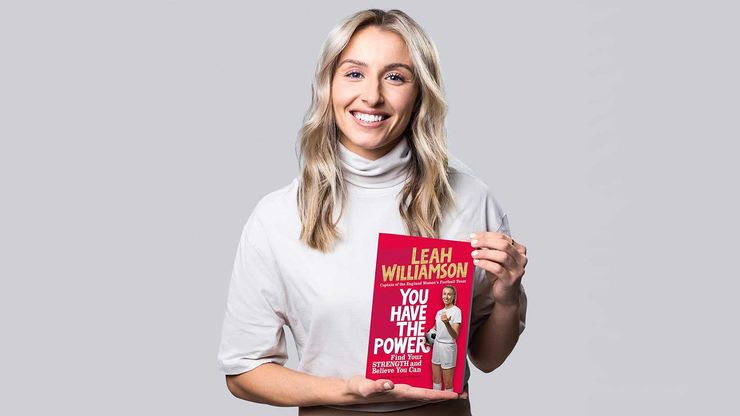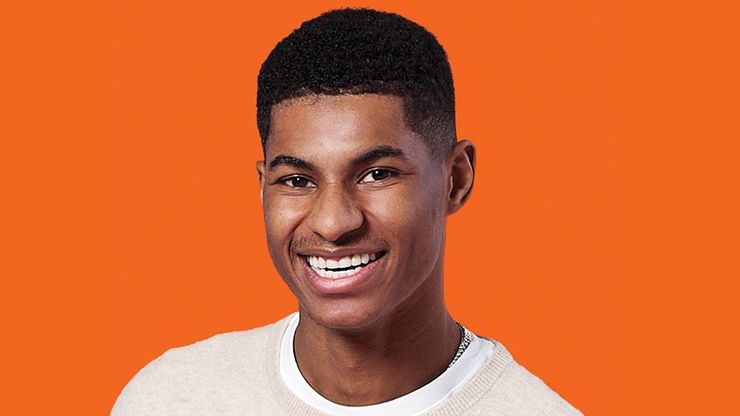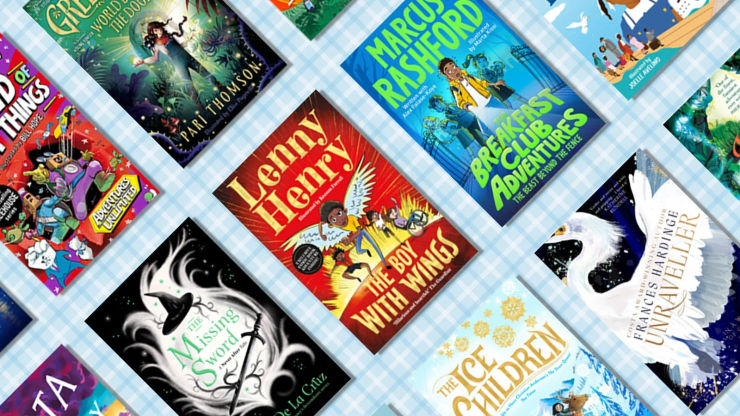'It doesn’t make you a superhero, but it does give you the power to lift other people up.' Leah Williamson on leadership and teamwork
The England women's football captain believes leadership is all about bringing out the best in other people.

In this edited extract from You Have the Power: Find Your Strength and Believe You Can, written with Suzanne Wrack, Leah Williamson explains how we can all be great leaders by being brilliant team players, and how a must-score penalty changed her way of thinking.
I am so proud to be England captain. It’s a massive honour to wear the armband and lead the team out onto the pitch at the start of each game, and I love that it gives me more opportunities to speak about the things that I believe in. But, as much as I love it, one thing I don’t like is when people say that being captain is a big achievement. It’s really just an extension of my regular job and responsibilities. Of course, it’s nice to feel like your manager trusts you, but really, anyone in any team could be the captain.
Being the captain doesn’t make you a superhero, but it does give you the power to lift other people up. It’s the same outside of football too. The thing that I like most about being a leader is being able to have a positive impact on others. The best way to make yourself feel good is to make someone else feel good about themselves and confident in their own abilities. As a leader, this is one of your biggest responsibilities.
‘The best way to make yourself feel good is to make someone else feel good about themselves and confident in their own abilities. As a leader, this is one of your biggest responsibilities.’
When you’re in a position of power – like being a captain – your job is to bring out the best in other people. But this is something everyone on a football pitch should be doing regardless, not just the captain. When you support each other in a team, you will find that you can accomplish so much more. It’s not just the captain’s job to ensure everyone is working together. If I can help people to be their best selves, the whole will benefit, including me.
In 2015, I was part of the England Under-19s team and we were playing games that would decide whether or not we would qualify for the Euros later that year. In our first game of the qualifiers, we were playing against Norway.
By the time ninety minutes of normal play was up, we were losing, 2-1. We went into added time and the team and I were desperately trying everything we could to score. In the ninety-sixth minute, just moments before the end of the game, Rosella Ayane was fouled in the box and we were given a penalty. I wasn’t the captain, but I was the penalty taker. If I scored, we would draw, but if I missed we would lose and be in a bad position in the group which meant possibly not making the Euros!
It was a lot of pressure. I stepped up to take the penalty and . . . I scored it. But, something else happened too. Just as I was about to kick the ball, it turned out that Rosella had moved into the penalty box. If a player moves into the penalty area before the ball is kicked, it’s called an encroachment, which is against the rules. So, the referee blew the whistle and ruled the goal out. I went to put the ball on the spot to retake it, but instead, they gave Norway a free kick! We had lost the opportunity to score, and we ended up losing to Norway 2-1. It was so gutting.
Thankfully, people realised that the referee had made a mistake. So, five days later, we had to replay the game from the time of my penalty, the ninety-sixth minute.
In that moment, waiting to take the penalty, I understood that if I took all the pressure and responsibility on my own shoulders then I would be downplaying the role of everybody else in the team who had helped to put me there and prepared me for that moment. My teammates made me feel like that too – they knew that whether we won or lost that game, it wasn’t on me, because we had all played this match together. There were ninety-six minutes of football before my penalty that we had all played together. So the pressure that I was feeling went from being as heavy as the weight of the world, with the team and fans, expectations all on me as an individual, to a lighter feeling of shared responsibility. Win or lose, I was only one part of a big team.
I took a deep breath – and then – I scored!
Being asked to be England captain didn’t mean I suddenly had all the answers or never made mistakes. Part of being a leader is knowing that it’s okay to be vulnerable and to ask others for help or advice when you need it.
‘Part of being a leader is knowing that it’s okay to be vulnerable and to ask others for help or advice when you need it. ’
We do a lot of team events, social events and team building exercises, to bring us closer together as the England team. This also helps us to understand each other better. If you know what your friend or teammate’s biggest strengths and weaknesses are, you will be able to spot when they are struggling. In turn, you’ll be able to help them. If you care about the person next to you, you are going to fight for each other that little bit more.
We are all leaders, even if you don’t wear a captain’s armband. And as a leader, you need to listen to and trust yourself. You need to be yourself and learn from people around you, rather than try to be someone else. You are in charge of your own life, your own journey and how you treat people on that journey. You can decide to take on responsibility and help to lift others up the way you want to be lifted up, and you don’t need a title to be able to do that. I’m trying to do that as a captain, but I tried before as a member of the team too. You can act like a leader in all your relationships, whether that’s at home or school; by helping those around you to be the best versions of themselves.
‘You can decide to take on responsibility and help to lift others up the way you want to be lifted up, and you don’t need a title to be able to do that. . .You can act like a leader in all your relationships, whether that’s at home or school; by helping those around you to be the best versions of themselves.’
You Have the Power: Find Your Strength and Believe You Can
by Leah Williamson
In the summer of 2022 Leah led the Lionesses to victory in the European Championships. Now, she wants to show you that you can achieve anything you put your mind to, both on and off the pitch, no matter what other people say. This positive guide for life will inspire you to lead like a pro, and motivate you to do what you love.
Written with journalist Suzy Wrack, You Have the Power is filled with stories from Leah’s own life and tons of brilliant advice, to show young girls how to find their strength and empower them to follow their dreams.
Discover the Wonder Team series
Explore the bestselling, time-twisting adventures by Leah Williamson, written with Jordan Glover and illustrated by Robin Boyden, perfect for readers aged eight to twelve.








